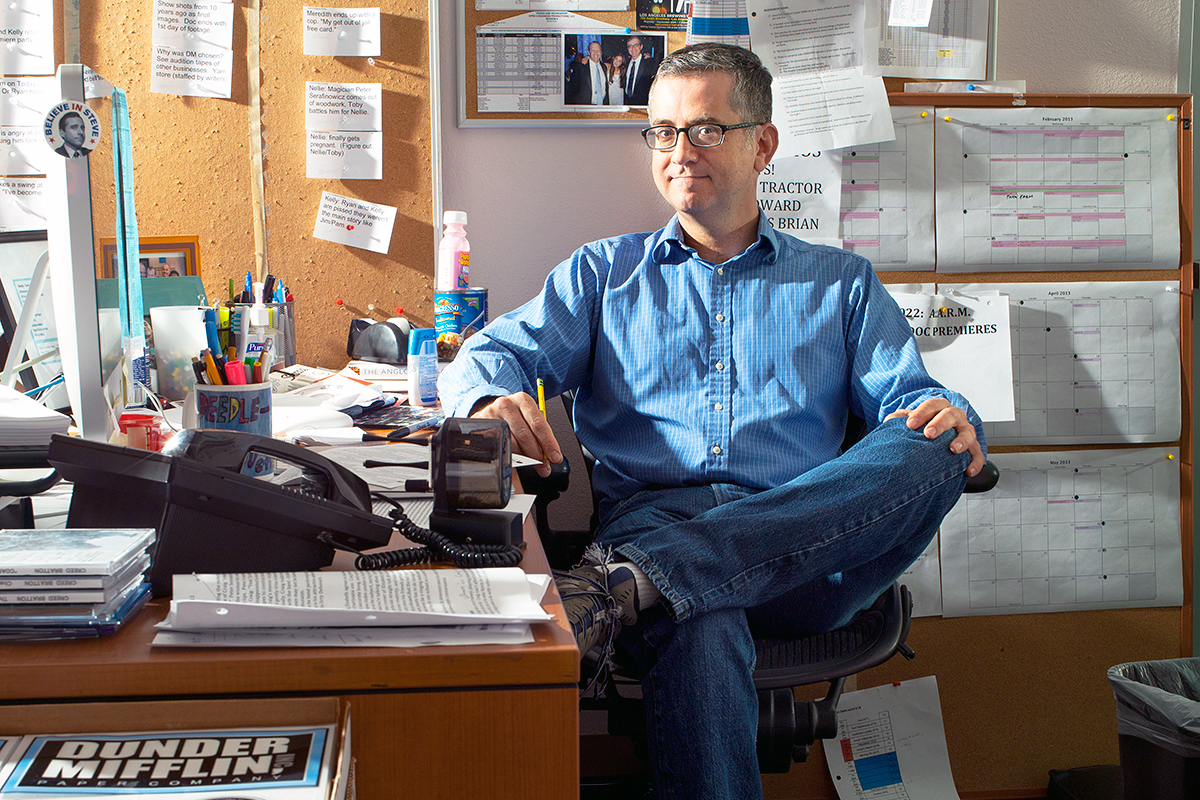Greg Daniels ’81

The genius of Greg Daniels ’81 is how he makes everyday life funny, absurdly funny. Just consider the Emmy Award-winning writer’s first big television credit: “The Parking Space,” which aired in April 1992, during season three of the sitcom “Seinfeld.” After hours of searching, main character George Costanza finally finds a prime parking spot in front of Jerry’s building in New York City. But just as he tries to back in, another car pulls up and starts to nose into the space first. The two drivers remain in deadlock all day, neither budging. In itself, it’s not a funny scenario. But in Daniels’ deft hands, it’s side-splitting. The 57-year-old’s particular brand of character comedy makes us laugh and also feel. The whole scene is pathetically relatable. And that’s because it actually happened to Daniels’ dad, Aaron.
Aaron Daniels’ daily commute took him between the family’s garage-less apartment in the city and New Jersey, where he was the sales manager of WPAT radio station. Greg recalls the night of the parking incident like it was yesterday and delivers its retelling in his signature style: dry, deadpan and satirical. “They get into this locked conflict and they were there for hours,” he says. “My dad flagged down a friend of his [who] was walking by and had him tell my mom so that my mom could bring my dad dinner in his car. He didn’t get the spot; after four hours he had to give up. When he got home, he woke me up and made me memorize the license plate so that if I ever saw the car, I could pop the tires.”
Daniels’ dad wasn’t just fodder for his son’s jokes, he was critic, fan and beta tester. “He had an act that he would do at the yearly meeting of his company — it was his version of Johnny Carson’s Carnac [the Magnificent] called Aaronac, and so I wrote jokes for him,” says Daniels, who drew on this memory when he adapted the British mockumentary series “The Office” for American audiences. “In ‘The Office’ there’s an Aaronac joke where Michael is preparing to do something for the Dundies. He tells the same joke that I wrote for my dad when I was 14.”
“Greg was always both serious and funny — and serious about being funny,” says fellow Exonian and elementary school friend Mark Sussman ’81. “I find that a number of his perceptions and observations on the world crop up from time to time in his work for television, from references to ’70s pop music albums or movies to certain pranks pulled by teenage boys spending summers in Long Island.”
Writing from life is a common technique for TV writers, Daniels says. “There’s a lot of volume involved in television, so if you have a good story, you put it right in there. That way, you’re not copying other shows, you’re taking the stories from your lives.”
Indeed, Daniels has built a career recasting his personal life as comedy. After a short run working on “Not Necessarily the News” and “Saturday Night Live,” he spent the next 30 years writing, producing and directing comedy scripts for popular and long-running TV shows including “The Simpsons,” “King of the Hill,” “The Office” and “Parks and Recreation.”